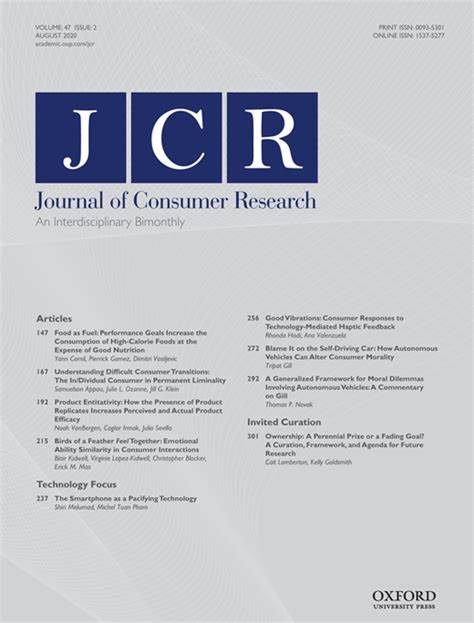Conspiracy Beliefs and Consumption: The Role of Scientific Literacy
IF 6.4
1区 管理学
Q1 BUSINESS
引用次数: 0
Abstract
Conspiracy theories pose risks to consumers, businesses, and society. The present research investigates the role of scientific literacy in a variety of conspiracy beliefs with implications for consumer well-being and sustainability (e.g., regarding COVID-19, GMOs and climate change). In contrast to the mixed effects of education in prior work, we find that scientific literacy undermines conspiracy beliefs and, in turn, conspiracy-related behaviors. This finding is explained by people’s ability to use two dimensions of scientific literacy—scientific knowledge and reasoning—to accurately assess conspiracy evidence. For robustness, we assess scientific literacy through both measurement and manipulation (ie, interventions), identify two moderators (evidence strength and narration) that attenuate the effect, and further validate our theorizing using national and international datasets (regarding COVID-19 vaccination and google search, respectively). We discuss the implications of our findings for consumers, companies, nonprofit organizations, and governments.阴谋论信仰与消费:科学素养的作用
阴谋论给消费者、企业和社会带来风险。本研究调查了科学素养在对消费者福祉和可持续发展有影响的各种阴谋论信念(如 COVID-19、转基因生物和气候变化)中的作用。与之前研究中教育的混合效应不同,我们发现科学素养会削弱阴谋论信念,进而影响与阴谋论相关的行为。这一发现的原因在于人们能够利用科学素养的两个维度--科学知识和推理--来准确评估阴谋证据。为了稳健起见,我们通过测量和操作(即干预)来评估科学素养,确定了两个减弱效果的调节因素(证据强度和叙述),并利用国内和国际数据集(分别关于 COVID-19 疫苗接种和谷歌搜索)进一步验证了我们的理论。我们将讨论我们的发现对消费者、公司、非营利组织和政府的影响。
本文章由计算机程序翻译,如有差异,请以英文原文为准。
求助全文
约1分钟内获得全文
求助全文
来源期刊

Journal of Consumer Research
BUSINESS-
CiteScore
12.00
自引率
9.70%
发文量
53
期刊介绍:
Journal of Consumer Research, established in 1974, is a reputable journal that publishes high-quality empirical, theoretical, and methodological papers on a wide range of consumer research topics. The primary objective of JCR is to contribute to the advancement of understanding consumer behavior and the practice of consumer research.
To be considered for publication in JCR, a paper must make a significant contribution to the existing body of knowledge in consumer research. It should aim to build upon, deepen, or challenge previous studies in the field of consumption, while providing both conceptual and empirical evidence to support its findings.
JCR prioritizes multidisciplinary perspectives, encouraging contributions from various disciplines, methodological approaches, theoretical frameworks, and substantive problem areas. The journal aims to cater to a diverse readership base by welcoming articles derived from different orientations and paradigms.
Overall, JCR is a valuable platform for scholars and researchers to share their work and contribute to the advancement of consumer research.
 求助内容:
求助内容: 应助结果提醒方式:
应助结果提醒方式:


